Legislative Lamentation
Over the years since I've been voting (1978), a number of amendments to Kentucky's Constitution, last fully rewritten and readopted in 1891, have been placed on the ballot for an up-or-down vote by the good and bad citizen-voters of the Commonwealth. In nearly every instance, I voted NO like a good Kentuckian, many of whom voted NO with me on most occasions, at least until recently. I know I voted YES on the Constitutional Amendment to allow the lottery back in the 1980s. I was a supporter of Wallace Wilkinson's campaign to be governor and this amendment was part and parcel of that campaign. Other than that I cannot remember voting YES which isn't to say I didn't; I just don't remember having done so. I voted NO in 2004 on the Anti-Gay Marriage and Civil Unions amendment; I voted NO on doing away with the extra Constitutional Officers, I voted NO on the creation of Family Courts, and I voted NO on having annual sessions of the General Assembly. I remain contented that in each of my votes, I was right even if a number, and sometimes a majority, of my fellow citizen-voters of Kentucky voted in a manner different than me. They will have an opportunity to explain themselves someday to Saint Peter as part of their "let me in" soliloquys to gain entrance inside the Pearly Gates.
That last one mentioned, sending the General Assembly into Regular Session at Frankfort every year (and for most part, for some additional Extraordinary time each year between those annual Regular Sessions), is the one I am most satisfied with. I will here note I voted on the losing side. I will also note I believe I voted on the right side. More people are crossing over to my way of thinking with each gavelling of a new Session, whether Regular or Extraordinary.
My belief then, and now, is that the real basic purpose of a legislature, is to come to the seat of government now and then and pass a budget for the Executive Branch to execute, and then pass those (hopefully few) laws necessary to keep some law and order, peace, good wealth and health, and a degree of tranquility within the confines of those budgets. Thomas Jefferson's Declaration of Independence, based on the earlier writings of George Mason, who may have based his on John Locke, called it "life, liberty, and the pursuit of happiness."
We used to pass two-year budgets which allowed our Executive Branch some ability to execute (run) the government for an extended period of time (ideally two years) before the citizen-legislators interfered by coming to Frankfort and commence to moving money from here to there; eliminating new and old forms of reliable revenue streams by exemptions, incentives, and lowering taxes; and more or less confounding the operation of the government every time the Speaker of the House and a group of Representatives or the President of the Senate and a group of Senators, or the governor who needs no help, thought it wise to do so, which is way too often.
Thus it is that we are now in the habit of passing biennial budgets knowing full-well that we will be changing them half-way through the biennium of which they are passed. It is a seriously deficient way of operating a government. But that isn't the worst of it. What is the worst of it is the way the legislature proposes to continue funding those proposed paths of life, liberty, and the pursuits of happiness, something they are charged with doing for all the citizens of the Commonwealth.
Governments are funded in a variety of ways, mostly through taxes, fees, and fines, the three of which tend to hit some one of us in some way, and thus hit most of us in some way. The idea of a government is for everyone to pitch in for the common good, the commonweal, of those others within their same jurisdiction, whether it be a town, city, county, or Commonwealth. This was the way it was done for most of the history of our Republic. There were exceptions. Along the way there were lotteries for the common good, such as the one created to fund Louisville's original public library in the late 1800s, although more of the proceeds didn't help the library than did, but that is a different story.
It is a widely known secret that I am more pro-tax than anti-tax. I believe governments have much to offer and I believe the people should fund the government to make those offerings available. And I believe, as it is written in the Holy Scriptures, that those who have more money should pay more into the system. [For the anti-tax Grover Norquist-type pseudo-Christians (usually also Republicans but not necessarily in Kentucky) who might be reading, this is taken from the Gospel of Saint Luke, Chapter 12, Verse 18, a part of which according to the King James Version reads, "For unto whomsoever much is given, of him shall be much required."] I take that to mean that the rich, at least according to the Bible, should be paying more taxes than those who are poorer than they. The rest of us, the part that are poorer than the rich, do our part by paying our repsective taxes, parting with a dollar here and another there to pay this or that fee or that or some other fine. And that is all good.
As I said above, I supported the amendment which gave us the Kentucky Lottery, which I dare say, is funded more by poorer folk than richer folk. I've bought and not cashed enough tickets to fund the four-year educational expenses of several Kentucky students at a Kentucky institution of higher learning. Honestly, it isn't the best way to fund a government. It is as Social Security was meant to be, a supplement to other means, other means meaning the levy of taxes. But we have come to rely on Wallace Wilkinson's sin tax - the lottery - as a regular recurring funder of our governments. I call it a sin tax out of deference to a number of Kentuckians who are keen on anything related to sin or sinning unless it pertains to themself or one of their kind.
Admittedly, I have, like everyone else, sinned. The Bible says that all have sinned. It is likely I will do so again. I'm reminded of a letter I sent to then-Congresswoman Anne Northup about ten years ago complaining of her defense of a colleague, the late Henry Hyde, of Illinois (naturally), who had been caught many years earlier with one woman whilst being married to another. Hyde didn't call it sinning; he euphemized it into a youthful indiscretion. He was 41 at the time of his youthful indiscretion. At the time I wrote the letter I was 38 and was happy to know I had at least three more years to commit youthful indiscretions, at least by Republican congressional standards. Now at 48 I have to call it by its real name, sin. Damn.
But, I digress.
Kentucky has in the past year decided the way to raise taxes is by penalising those of us who sin through our use of alcohol and tobacco. I gave up serious drinking twelve years ago and, although I have never smoked a cigarette in my life, I have been known to enjoy a good and sometimes expensive cigar now and then, as I did last week up in Madison, Indiana. I did enjoy a bottle and a half of a Brown-Forman bourbon product made right here along the Left Bank of the Ohio River near Milepost 606 the night my congressman was first elected, but that was special. But those upon whom these taxes fall the heaviest are those who can least afford it, while for those who can, the group referred to in Saint Luke's Gospel, it is but a small part of their income. I believe the sin taxes passed earlier this year were, frankly, sinful.
Now we are at another crossroads, with the General Assembly convened to fund even more of the government by means of an additional sin-type of tax, but in a different form. This time we want to add slots to our means of raising taxes from those who like to gamble. And we have the Attorney General's blessing to do so under that Constitutional Amendment for which I voted back in the 1980s. But, there is a catch. The slot machines will be limited to Kentucky's race tracks. Maybe there will be betting in some off-track betting parlors; I don't know. I do know we have race tracks of some sort in Louisville (Jefferson County), Lexington (Fayette County), Paducah (McCracken County), Prestonsburg (Floyd County), Evansville (Henderson County), Florence (Boone County), and Franklin (Simpson County). I mentioned the counties for a reason. Our Commonwealth is organized into political subdivisions known as counties. We have 120. I've listed seven. Race tracks in seven counties will be able to operate the slots and receive commissions of some sort from them I suppose, commissions which will hopefully go toward a reversal of the races tracks' collective fortunes, which according to all reports, are failing. Little has been recently written about the disagreement the tracks collectively had with the backside trainers and others over commissions from off-track betting, which may have something to do with trainers and others up and leaving from the rich soil of the Commonwealth of Kentucky and taking their horses to the richer purses of other states. Maybe that is part of their failings, maybe it isn't.
What I do know about the current legislation is that is seems to me to offer special legislation to a single classification of business and that is problematic for me. I do not wish the tracks not to have slots. I'm all for protecting one of our signatures industries, something we remarkably didn't do earlier this year with alcohol and tobacco. And, truthfully, I'm all for it expanded sinning - I mean gambling. As I said, I do both. But as my six faithful readers know, I like to travel about the Commonwealth, taking the backroads to destinations where many will never travel, and some of those who are there will never leave. I particularly like to play the Three-Line Lotto game of the Kentucky Lottery. It is played on Tuesdays and Fridays. If I am out and about over a given weekend, chances are I will buy one ticket in, say for instance, Trimble County at the little market where US421 and US42 fork just east of Bedford. Then a few hours later, I may be in Lawrenceburg in Anderson County where I will buy another ticket at the BP along US127 just north of its intersection with the Martha Layne Collins Blue Grass Parkway. As I head back into Louisville, I might buy a third ticket in Mount Washington in Bullitt County at the market next to the Walgreens on KY44, just east of the US31E ByPass. (You can follow this course - it is a logical circle out of Louisville to the northeast, south, then west back into town). However, none of these counties, Trimble, Anderson, or Bullitt, have a horse racing track, ergo, there will be no slots to play here. Neither these three nor the 110 others, other than those seven mentioned above will have the luxury, used ever so contrarily, of additional gambling opportunities, opportunities first afforded by the Constitutional Amendment which does allow all 120 of them to sell Kentucky Lottery tickets.
I'm all in favor of allowing slots at the tracks, especially if it helps them as otherwise apparently failing business ventures. But I am also in favor of helping all the local franchisees of BP stations, and the Mom-and-Pop grocery stores in little cities and even littler country crossroads. If this government subsidy is good for the big racing corporations, wouldn't it be that much moreso for Joe and Jane Doe on Main Street in Smalltown, Kentucky?
Incidentally, as a small-time gambler, I think the odds are good the measure now passed in the Democratic House and before the Republican Senate will, with a little asphalt here and some schools there, along with an tax exemption here and a lower assessment there, pass and get signed by the governor. And that isn't all bad. It just could be better.


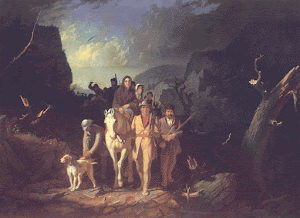












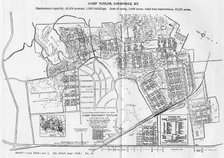
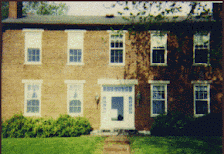

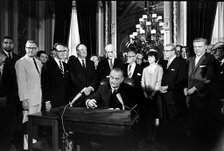

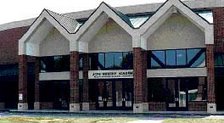


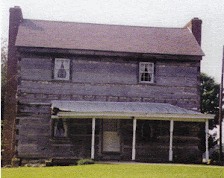
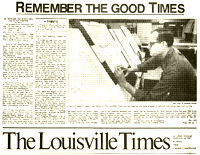
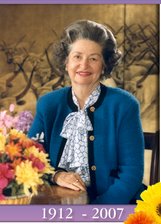
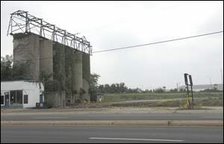
2 comments:
Well, Mr. Noble, if I understand your sentiment at the very end of your post, you are in favor of STATEWIDE video slots, not just at the tracks. And on this I must disagree.
Ask South Carolina about their experience with statewide video slot machines. As I understand it, the machines became both so ubiquitous and so abused that they finally had to take them out. Children were playing them; gambling addiction sky-rocketed; the crime rate increased. Because the terminals were everywhere, and were so easy to use, there was no supervision and immediate feedback, leading to higher rates of abuse and addiction.
For the rest of your post, I pretty much agree. At one point, I thought we should have year-round legislators -- make it a real job, with higher expectations. But after seeing what goes on time after time in session, I'm inclined to move in your direction.
Great article. Welcome back from holiday. Ten bucks says you're wrong about the slots. Never pass in the Senate. -McAdam
Post a Comment